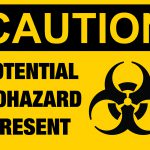
Proper Hazardous Waste Collection and Removal
The prevention and cleanup of hazardous waste is one of the nation’s major concerns.
Hazardous waste comes from a variety of sources, including batteries, nuclear power, and household cleaners. Even if you don’t produce hazardous waste yourself, you’re contributing to it indirectly. The business you work for or the university you attend – where computers and lights are turned on continuously – necessitate nuclear power.
Hazardous waste can’t be disposed like normal trash in landfills so people often turn to companies like Jenkins Environmental to help with cleanup and disposal when there is an accidental spill or seepage. Jenkins Environmental has trained technicians who are able to match specialized cleaning methods, disinfecting agents and safety protocols with the task at hand.
Hazardous waste can be found in the form of solids, liquids, gases or sludge and you can do your share to help protect the environment and yourself. Below are a few steps that you and your business can take to ensure that you are disposing of your own hazardous waste properly.
1. Incinerators
Incinerators are one way in which hazardous waste can be disposed of properly. The EPA reports that incineration can destroy toxic organisms in hazardous waste, which will in turn cut down on the overall amount of waste.
2. Sharing and/or Donating
Sharing your hazardous waste is one way to dispose of it. For instance, if you have extra lawn fertilizer sitting in your garage, share it with your neighbor. You can also donate paint to places such as Habitat For Humanity or to a local contractor. Anything that you can do to use the product as opposed to dispose of it can be helpful to the environment.
3. Recycling
Recycling is becoming ever more popular when it comes to disposing of hazardous waste. Used oil is a common waste product that is harmful if dumped into a landfill. As such, disposing of it has become difficult. Companies are now recycling used oil into other products such as different grades of oil.
4. Storage
Storing hazardous waste until it is no longer hazardous is something that is done by many, especially in the nuclear industry. Over time, the waste will lose its toxicity and will be able to be placed into a normal landfill and buried.
5. Medical waste
Medical products such as used needles should be disposed of only in proper sharp disposal systems. Biohazards such as blood should also be included in this method. You can purchase a disposal system at a local box chain store and keep it in the house if you regularly use medical supplies. Prescription drugs should never be thrown in the trash or washed down the sink. Most pharmacies will have a drop-off location where you can take unused medication. They will then turn it over to the pharmaceutical representative, who will properly dispose of it.
Hazardous waste has become as much a part of society as the products that create it. With an ever-increasing demand for technology and energy, it will continue to accumulate at a record pace. Finding new and innovative ways that not only reduce but help dispose of hazardous waste is a goal that needs to be met.
If you are dealing with hazardous materials, Jenkins Environmental Services can help.




